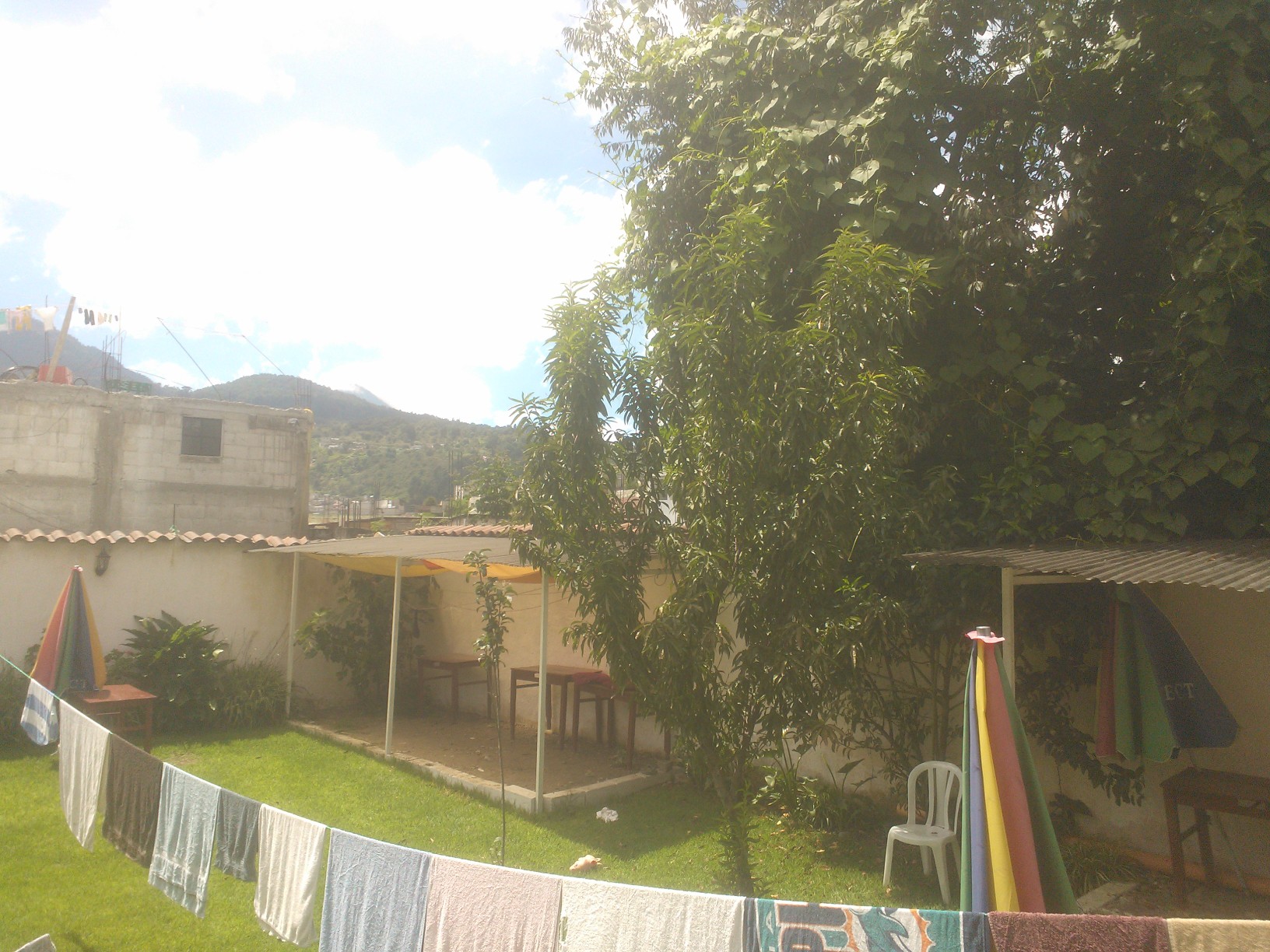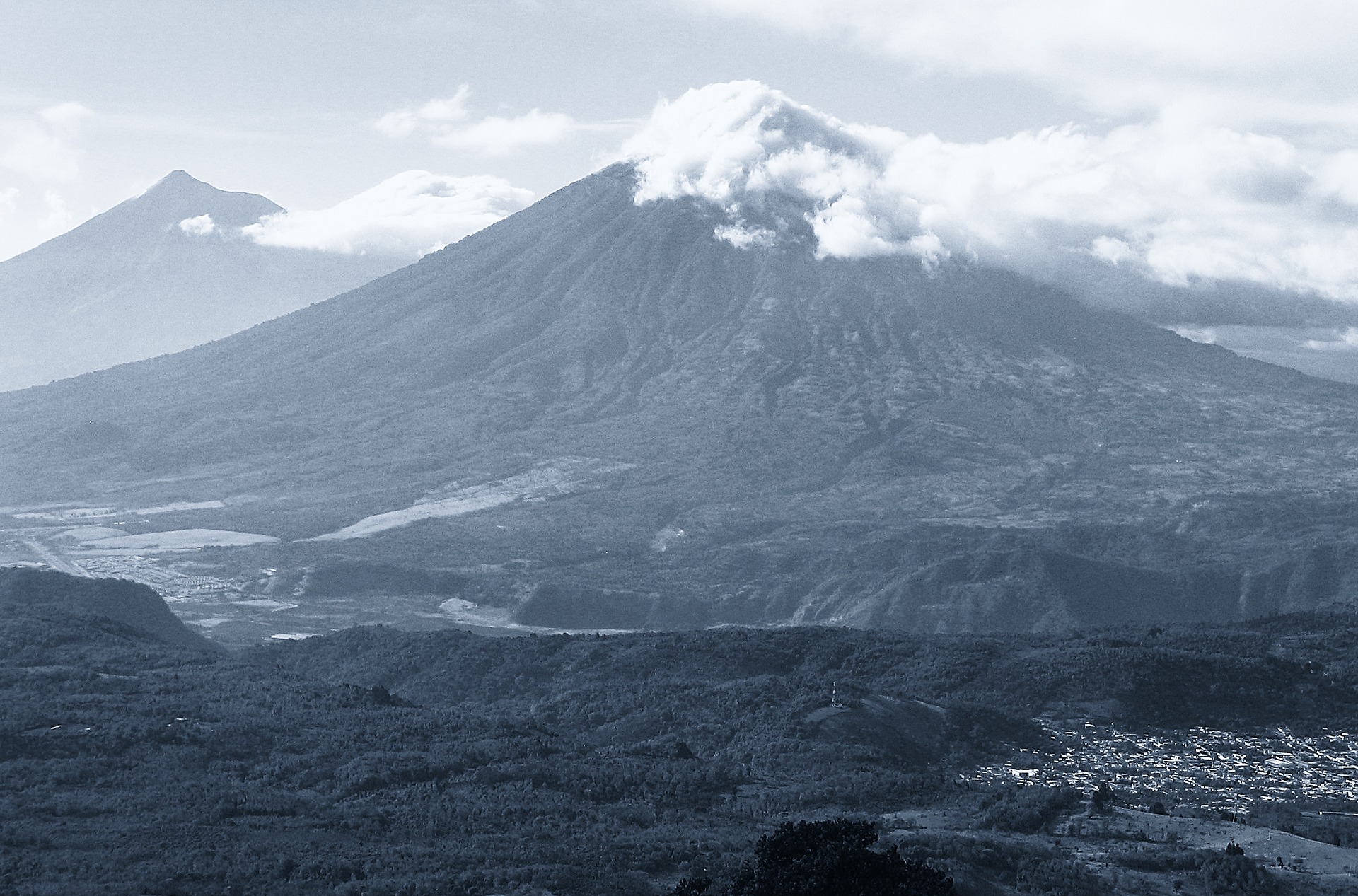A Dangerous, Broken State
Guatemala's state is undermined by its leaders and proven reforms must be implemented
“When I was a kid, the streams were clean. You could play in the streets without fear. Now, the streams are heavily polluted and kids are routinely kidnapped from the streets,” says Sylvia as we walk beside a stream filled with plastic bottles and water with white bubbles on the surface. In the street children play soccer.
As we ride the bus to return to Sylvia’s house, I remember how Sylvia’s mom frets about the family’s young children playing in the streets without adult supervision. Sylvia’s mom has made clear the young children are, under no circumstances, to play outside the family’s home.
Being outside is especially dangerous for older children. American attorneys who work with teenagers fleeing Guatemalan gangs say that adolescent males are approached on their way to school or church and told they will end up dead if they do not join the gang. The threats lead many to seek asylum in the United States.
Luckily for Sylvia and her family, their home has a large backyard where the family’s young children can play. The luxury of a yard, however, is uncommon in urban areas in Guatemala. The outlets for most children are the unsafe streets or televisions indoors.

The lack of safe spaces to play has helped create a serious public health problem. As of 2020, around five percent of Guatemalan children five and under and over 35 percent of teenagers were obese or overweight.
Despite the high numbers of overweight and obese youngsters, nearly half of children five and under were malnourished as of 2020. Guatemala is one of Latin America’s poorest countries where, in addition to lacking safe spaces to play, many also lack money for sufficient food or healthy food. Almost 70 percent lived in poverty before Covid, a number likely higher today.
Sylvia, myself and a few others go to an orphanage to volunteer once a week. The children are affectionate and eager for attention. About half run bare feet and most wear dirty clothing. “This orphanage only gets what they receive,” says Sylvia.
I ask if the government helps at all. “Are you kidding? They only help themselves,” she says with an eye roll.
Guatemala is a corrupt nation in a corrupt region of the world. Alvaro Colom, president from 2008 to 2012, is in jail for stealing millions from public coffers. The next president, Otto Perez Molina, has been incarcerated since 2015 for taking bribes related to the building of port facilities. President Jimmy Morales, left office in 2020 amid a swirl of corruption allegations. Before leaving office, he forced out the United Nations’ CICIG, an organization that had successfully investigated the aforementioned ex-presidents and other government functionaries. Morales’ action reconfirmed for many Guatemalans that those in government only serve themselves. Insight Crime has labeled Guatemala a mafia state because, in addition to this endemic high level corruption, many in power have close ties to international drug smugglers.
The corruption impacts day to day life as well. While going with Sylvia and a group of students to a coastal retreat, the police stopped our van without pretext. They talked with Sylvia for a few minutes and then returned and looked closely through the van while we watched at our seats. They finally said, “You know the road you are going on is very dangerous, be careful.” It seemed like a threat but Sylvia did not budge. Perhaps because some of us were foreigners they let us leave without a bribe, Sylvia said.
Additionally, my mom sent a package to me in Guatemala via UPS. When she paid in the United States, UPS assured her there would be no customs fees upon arrival in Guatemala. However, I received a call from Guatemalan customs saying the package would be delivered until I paid a tariff. I called UPS and they called the customs office which finally allowed the delivery without further charge.
As a foreigner you have the privilege to escape much of the corruption. Sadly, the locals cannot escape its scourge. Multiple Guatemalans told me that every business in Guatemala pays protection money to the mafia. This includes small shops, auto repair shops and city bus routes which tend to be privately operated. The widespread extortion is confirmed by independent studies as well.
Extortion is a function of corruption because the police are on the payrolls of criminal bands. As such, there are few in society able and willing to fight extortion. Those that do fight extortion often pay with their lives. According to a report on violence in Central America by the International Crisis Group, the threat of violence in Guatemala leads to silence where the culture of extortion goes unchecked.
The police are indeed for hire at the right price. One Saturday, Sylvia organizes a hike for a group of her foreign students. She pays the police to protect us. If they are not there it is not safe. A few weeks before we hike two foreigners were robbed and killed on the mountain who did not have police protection. Basic safety requires extra pay.

In fact, many Guatemalans pay little to no taxes and this is another factor undermining public safety. Sylvia tells me no one who makes under 1,500 USD monthly pays income taxes. This is a huge sum in Guatemala and means only the upper-middle and upper classes pay income tax. In fact, under 1 percent of the population pays 90 percent of income taxes in Guatemala. Even those who do pay income taxes often pay under five percent of their income in taxes. As a result, Guatemala has the lowest social spending of any country in the world. It could be a chicken or the egg problem. Until the state has increased tax revenue it may be hard to make poorly paid police and soldiers reject bribes and risk their lives to tackle corruption and extortion.
The corruption, violence and poverty are key factors driving Guatemalans to migrate to the United States. While many Guatemalans hold responsibility for the destruction of the country, the United States also has caused significant harm. The United States bankrolled the government during the multi-decade Civil War from the 1960s until the 1980s. This, as Sylvia notes, led to the disintegration of civil society and today’s ills.
Lastly, the United States had been a supporter of the aforementioned CICIG but after then president Jimmy Morales expelled the CICIG the Trump administration did not protest. Morales had moved the Guatemalan embassy in Israel to Jerusalem, a major goal of the Trump administration. Moreover, support for fighting corruption in Latin America was a far lower priority for Trump than under previous U.S. administrations.
As such, the U.S. must recognize its debt to Guatemala. The U.S. dedicates security and development aid to Guatemala while, at the same time, it criminalizes the migration of Guatemalans to the United States. By criminalizing migration it simply puts innocent people in danger as they face extortion from gangs and corrupt police as they travel across Mexico to cross the U.S. border. Just paying to solve a problem has not worked; Guatemala clearly has not been transformed into a functioning state that protects all its citizens. At the same time, allowing the entire country of Guatemala to migrate to the United States is not a viable option.
And the entire Guatemalan nation does not want to abandon ship but simply desires a chance to live with dignity. Guatemalan citizens have shown they desire a better country that functions effectively. There have been massive protests against state corruption and the withdrawal of the CICIG. The United States must leverage its aid to encourage Guatemala to bring back the CICIG. The expulsion of the CICIG by its corrupt government is proof of its effectiveness. At the same time, the United States must allow greater legal immigration from Guatemala to relieve the pressure to cross without papers through an increasingly dangerous land route. In a recent trip to Guatemala, Vice President Kamala Harris told Guatemalans not to come to the United States without papers and to use the U.S. immigration system to legally come. Vice President Harris, please make that legal immigration possible and support the Guatemalan people in building a better nation.
